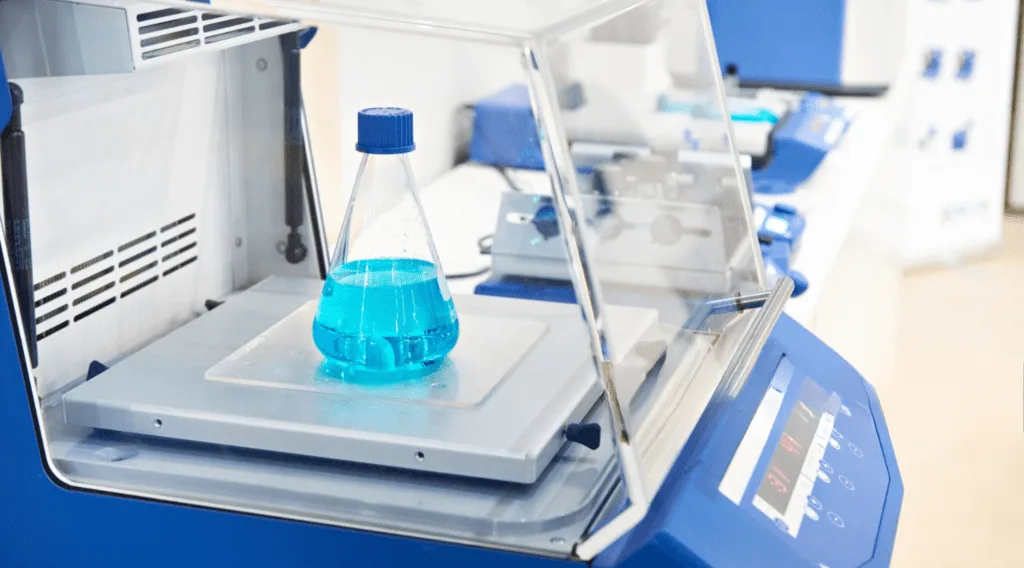When it comes to laboratory equipment in South Africa, one essential item for many scientific experiments is the shaking incubator. These versatile instruments combine the functions of a standard incubator with the added benefit of agitation, making them invaluable for a variety of applications in research, biotechnology, and clinical settings. But with so many options available, how do you choose the right shaking incubator for your needs?
At Apex Scientific, your trusted laboratory equipment supplier in South Africa, we offer a range of high-quality shaking incubators from reputable suppliers like Jeiotech and Being International. In this article, we will explore the different types of shaking incubators, their key features, applications, and considerations when choosing the best option for your laboratory.
Key Features and Benefits of Shaking Incubators
A shaking incubator combines precise temperature control with shaking capabilities, ideal for applications that require both heat and agitation. Some of the most important features include:
- Temperature Control: Precise temperature regulation, often with a range of 5°C above ambient temperature up to 70°C, ensures optimal conditions for sample incubation.
- Shaking Mechanism: The shaking speed is adjustable, typically from 50 to 300 RPM, to suit different applications like culturing bacteria or mixing reagents.
- Uniformity: Even heat distribution ensures consistent results, which is crucial for experiments requiring precise conditions.
Types of Shaking Incubators
When choosing a shaking incubator, it’s important to understand the different models and their applications.
Range of Sizes and Stackable Options
Shaking incubators come in various sizes to accommodate different laboratory needs. From compact, benchtop units to larger, floor-standing models, the size you choose will depend on your space and sample volume. Some models are stackable, which is particularly useful in laboratories with limited space, allowing you to combine multiple units without sacrificing functionality.
Floor-Standing Chest Shaking Incubators
For laboratories with higher throughput or larger sample volumes, floor-standing chest shaking incubators are an excellent option. These larger units offer more shaking space and can handle larger sample containers, making them ideal for applications like bacterial growth or enzyme reactions.
Variety of Sample Holders
The flexibility of a shaking incubator is enhanced by its wide range of sample holders. Different types of holders include:
- Flask Clamps: Secure and stable, ideal for shaking flasks without the risk of spillage.
- Universal Attachments: Designed to accommodate a variety of vessels such as petri dishes or beakers.
- Roller Bars and Stick Mats: For gentle agitation of containers like test tubes or smaller culture bottles.
- Tube Holders: Perfect for small sample tubes, ensuring consistent shaking and incubation.
Considerations When Choosing a Shaking Incubator
Selecting the right shaking incubator involves more than just looking at its features. You should consider factors such as:
- Sample Type: Different applications require different shaking intensities and temperature control. Ensure the model you choose matches your specific needs.
- Size and Space: If your laboratory has limited space, stackable or benchtop models may be the best option. Larger laboratories with more equipment may benefit from larger, floor-standing units.
- Power and Speed Control: Look for an incubator with adjustable shaking speed to match your specific experimental requirements.
- Ease of Use: Ensure the unit is easy to operate and clean, with accessible controls and durable materials.
Applications of Shaking Incubators
Shaking incubators are widely used in a variety of scientific applications, including:
- Microbial Cultivation: Shaking incubators provide the ideal environment for growing bacteria, yeast, and other microorganisms that require both warmth and agitation.
- Protein Expression: For research in biochemistry or biotechnology, shaking incubators can help grow cells and enhance protein production.
- Cell Culture: In research and clinical labs, these units are crucial for culturing cells under controlled conditions.
- Chemical Reactions: Shaking is often necessary in chemical experiments where reagents need to be mixed consistently while being heated.
Why Choose Apex Scientific?
As a leading laboratory equipment supplier in South Africa, Apex Scientific is proud to offer top-of-the-line shaking incubators from trusted suppliers like Jeiotech and Being International. Whether you need a compact unit for benchtop use or a large, floor-standing incubator for high-volume experiments, we have you covered. Our shaking incubators provide precision, reliability, and versatility, ensuring your laboratory can perform at its best.
Explore our collection of shaking incubators here and find the perfect fit for your laboratory needs. For more detailed product specifications, visit our trusted suppliers:
Conclusion
Choosing the right shaking incubator is crucial for ensuring the success of your laboratory experiments. With the range of sizes, sample holders, and features available, Apex Scientific makes it easy to find the perfect solution for your specific needs. Whether you’re conducting microbial cultivation, protein expression, or chemical reactions, our high-quality shaking incubators from Jeiotech and Being International will help you achieve reliable, consistent results every time.




